
Black Frames on the Big Screen
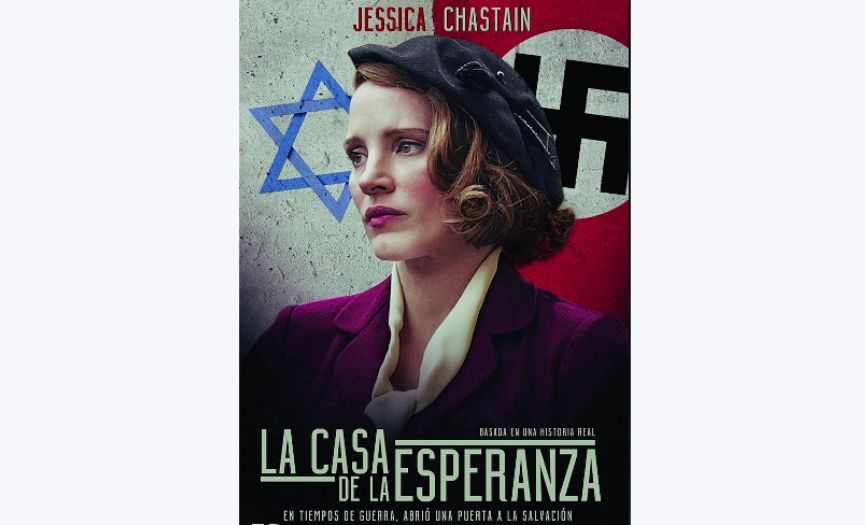
“Not every Holocaust movie is a Holocaust movie”
While we live, we encounter such scenes that the way we watch what happens turns us into cameras. The camera is a machine, not an audience… You should watch movies just like watching life. To watch a movie properly, you have to watch it while watching yourself. Cinema involves loneliness, you are alone. You look but do you see? There is a difference between looking and seeing, and cinema teaches us to see. You watch the puzzle pieces of life, the pain, the happiness, or the injustices that make people hate each other, as frames on the big screen. The black frames of the big screen are Holocaust films. While the victims of the Jewish Holocaust during the Second World War are commemorated in many parts of the world as part of Yom Hashoah or International Holocaust Remembrance Day, that period is also brought to life for the audience through films made by the cinema industry. While there are Schindler's List, Life is Beautiful, The Pianist, and countless other successful Holocaust movies, we also watch completely different movies as if we were watching a Holocaust movie. In summary, not every Holocaust movie is a Holocaust movie. Here is one of these movies; The Zookeeper's Wife (Garden of Hope).
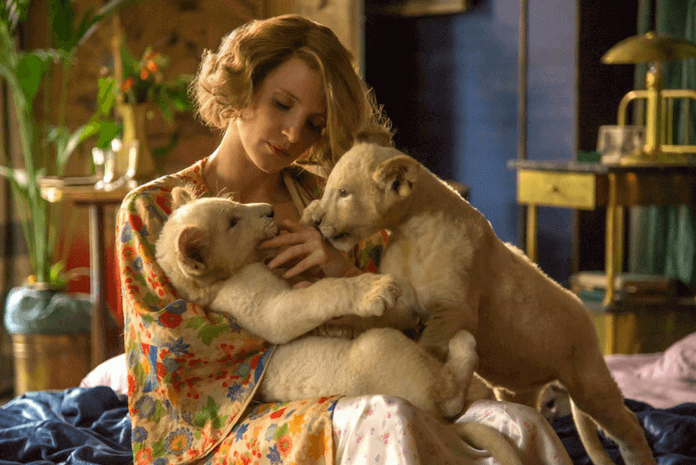
The image of Antonina, aka Jessica Chastain, with the lion cubs that she keeps on her lap throughout the first scenes of the movie
“It's a 'Human Garden' not a zoo”
In this film, shot in 2017 by the New Zealand film director and screenwriter Niki Caro, it is told, based on real events, that a Polish couple who run a zoo in Warsaw turned the zoo into a shelter to help Jewish citizens after the 1939 Nazi occupation. Everything is ok so far. When you start watching the movie, you start to doubt the way the movie progresses, the narrative center shifting from its axis, and whether the language used is descriptive or humiliating. You have to endure the false movements of Jessica Chastain, the lead actress, with her Marlyn Monroe voice, revealing her sexuality, from the beginning to the end of the movie. You'll be surprised at what you're getting into with unnecessary nudity, inappropriate bed scenes, and high-pressure libido injection. Wait a minute, what were we watching in this movie? Jessica Chastain's stilted acting alienates the audience from the subject of the film.
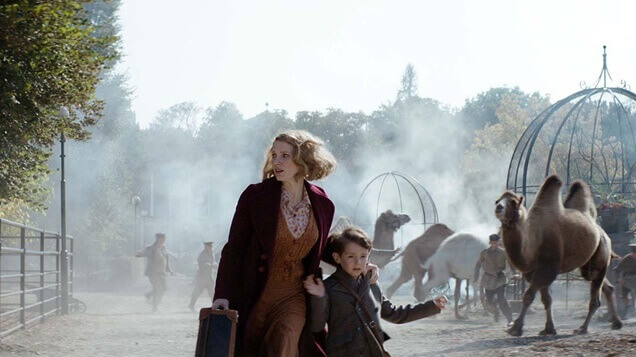
Antonina's surprise as she tries to escape with her son during the bombardment
The character of Antonina is so exaggerated that she is even ahead of her husband, the doctor in charge of the zoo. From the first plans of the film, it is shown as if Antonina is the only one in charge of the zoo. In their mutual dialogue, it is not clear what they want to do or what they have decided. You either shoot the movie in its own language, Polish, and we will watch it with subtitles, or what is the point of making people speak in proper English, broken English with a Russian accent? You want every character in the movie to be silent or not to speak, it's so annoying. For example, they have a little son, who wanders everywhere, but nothing happens to him. While walking on the street with his mother, he sees Jewish workers putting a heavy workload on them and asks: "Mom, what are these men doing, like mules?" What the hell is this? Is this the sentence to use? Likewise, in another scene in the film, Antonina, that is, Jessica Chastain, says to her husband in her bedroom voice: "So this is not a zoo anymore, it is a human garden." This is the second insulting sentence!
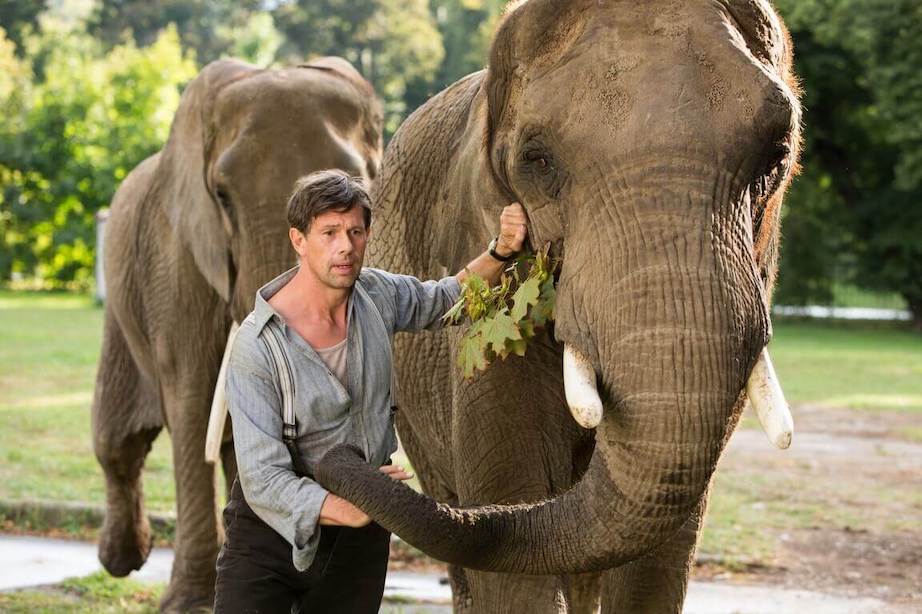
One of the rare scenes in which we will see Doctor Zabinski on duty
Female bear or a naive young girl?
I call her the savior of the movie, Shira Haas also plays in the movie, but she really plays. In a scene where the talented actress, whose successful acting we have seen in the TV series Unorthodox and Shtisel, is talking to Antonina, she says that she is called Urszula (female bear). As a viewer, you are once again stunned, and you cannot help but wonder if they are kidding.
The animals that have perished are brought to our attention
Animals destroyed by Nazi bombs are shown to the audience. You are disturbed by the sight of blood, intestines, and flesh. However, in the happy scene at the beginning of the movie, we had loved these clotted animals and empathized with them. They shoot the elephant, the eagle, and the lama right before our eyes. I couldn't see where the note "No living creatures were harmed in this movie" was in the movie. FYI, real animals are playing in the movie.
Illogical scenario, stupid sentences...
In the movie, the following announcement is made to the German forces occupying Warsaw: “The German government has captured Poland. We believe that the people of Warsaw will accept the entry of German forces into the city QUIETLY and WITH HONOUR. We listen to this announcement twice, in broken English and strange German. What kind of incompetence is this that which people of a besieged country would silently accept this situation? Does this acceptance show the honor or dishonor of that people? Situations and sentences that make the audience say "no more" while watching...
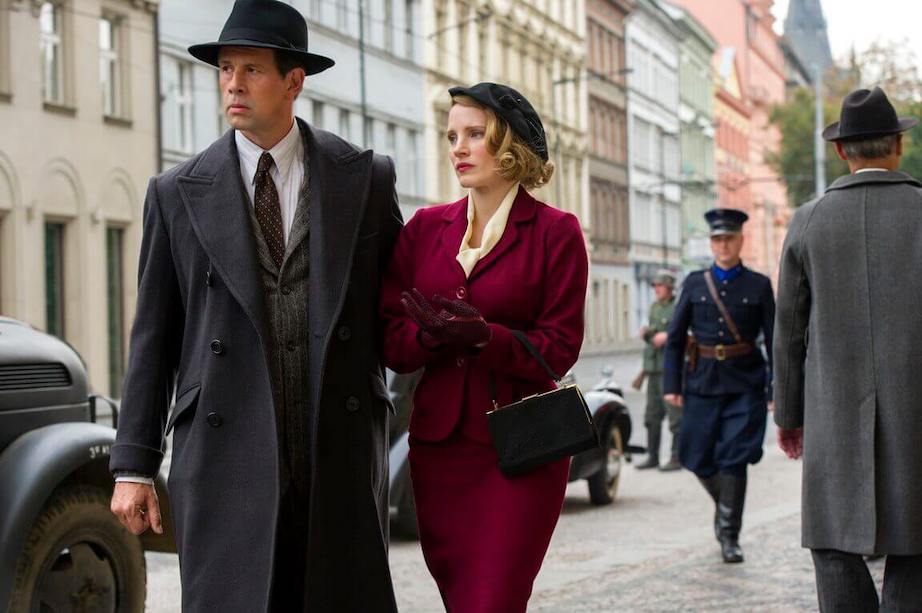
The Zabinskis are going to the headquarters to discuss their desire to establish a pig farm with the Nazi officer in charge
Pork? What does it have to do with it?
How do you think it should be viewed when Antonina's husband, Doctor Zabinski, sets up a pig farm and crosses the border to collect their garbage as fodder, then brings a pack of pork to his Jewish friends in the ghetto? Weird, meaningless…
Yellow star or blue star?
In light of the information from the photographs, which we are familiar with in almost every holocaust movie we know, the armbands with yellow David stars change to blue stars. The audience is stunned.
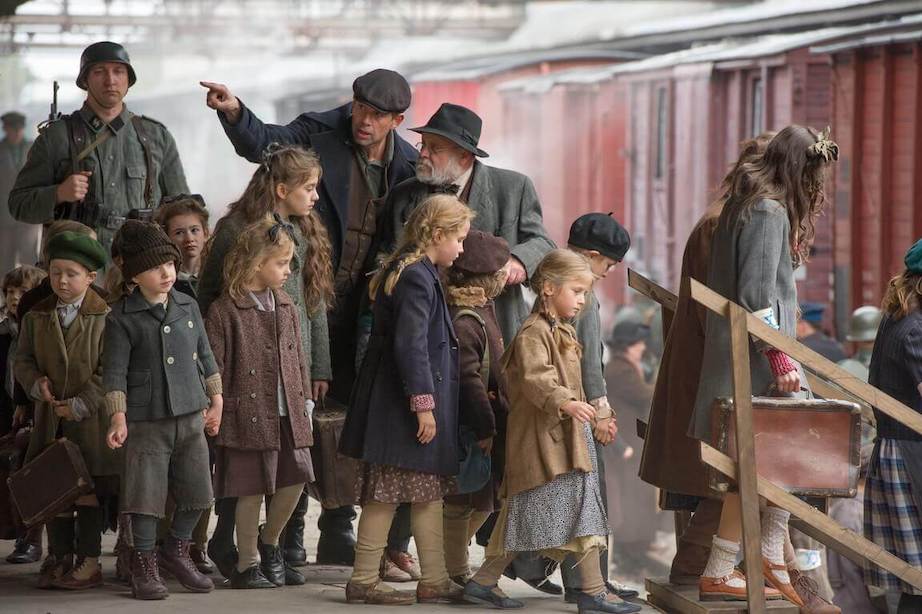
Jewish children evacuated from the ghetto; their suitcases are taken from them and they are loaded onto the train like goods
"I can't hide this face!"
The words a young Jewish friend living in the ghetto says to Doctor Zabinski are: "I can't hide this face! Where should I go?" You look at it and say, what is there on the actor's face that would indicate that he is Jewish? He looks like an ordinary German. You are also thinking, what is this sentence trying to express? This face, this hair color, etc. If you want to highlight their distinctive features, you wouldn't shoot these scenes in this way, and why wouldn't you make the Jewish women who were executed because they changed their hair color or dyed their hair, kneel in front of the guns, so weak and helpless? Who would go to death without resisting?
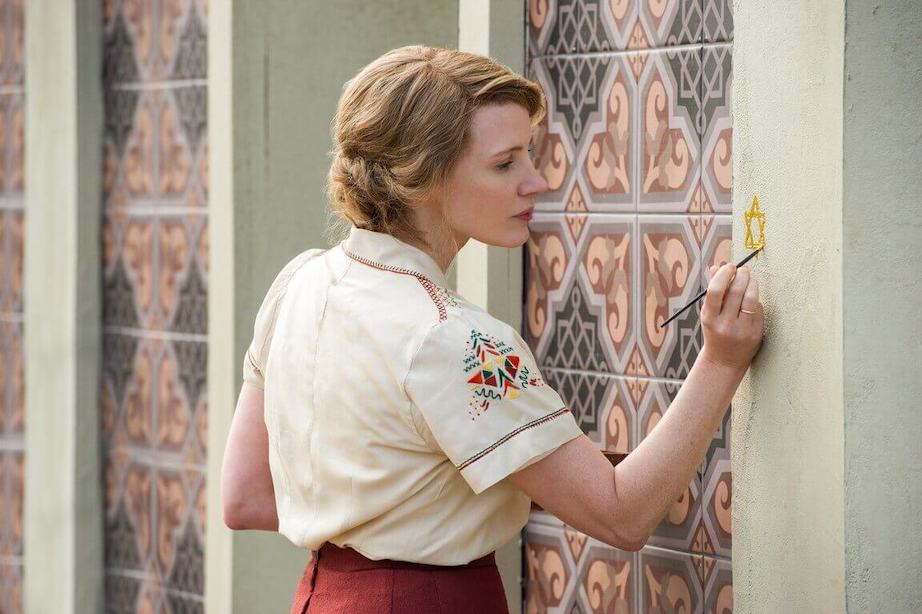
The scene where Jessica Chastain paints the Star of David on the wall; the hasty placement of the message that could not be achieved in the movie, in the last scene of the movie, also seems contrived.
Understanding the Holocaust in Cinema
Movies shot for the Holocaust shed light on the audience for those trying to understand the Holocaust committed by Nazi Germany during World War II. Efforts to make sense of the numerous Holocaust films can only be seen when you look at the big screen. The power of cinema is under its influence. The frames in Holocaust movies are not colored, but black, even pitch black. It is up to the viewer to solve the reason for this darkness. If a film that claims to depict a period in which almost half a million Jews were imprisoned in Warsaw, where the largest Jewish ghetto was located, is not accurately portrayed, we should be able to see and distinguish this. We cannot accept every movie made as a drag and swallow it. Let's see, but let's see.
I recommend you watch the movie The Zookeeper's Wife, ignoring the well-studied period costumes, sets, accessories, well-shot film plans, bad acting, unfocused script, and bad English. Let's watch and see that not every Holocaust movie is a Holocaust movie.
Related News









